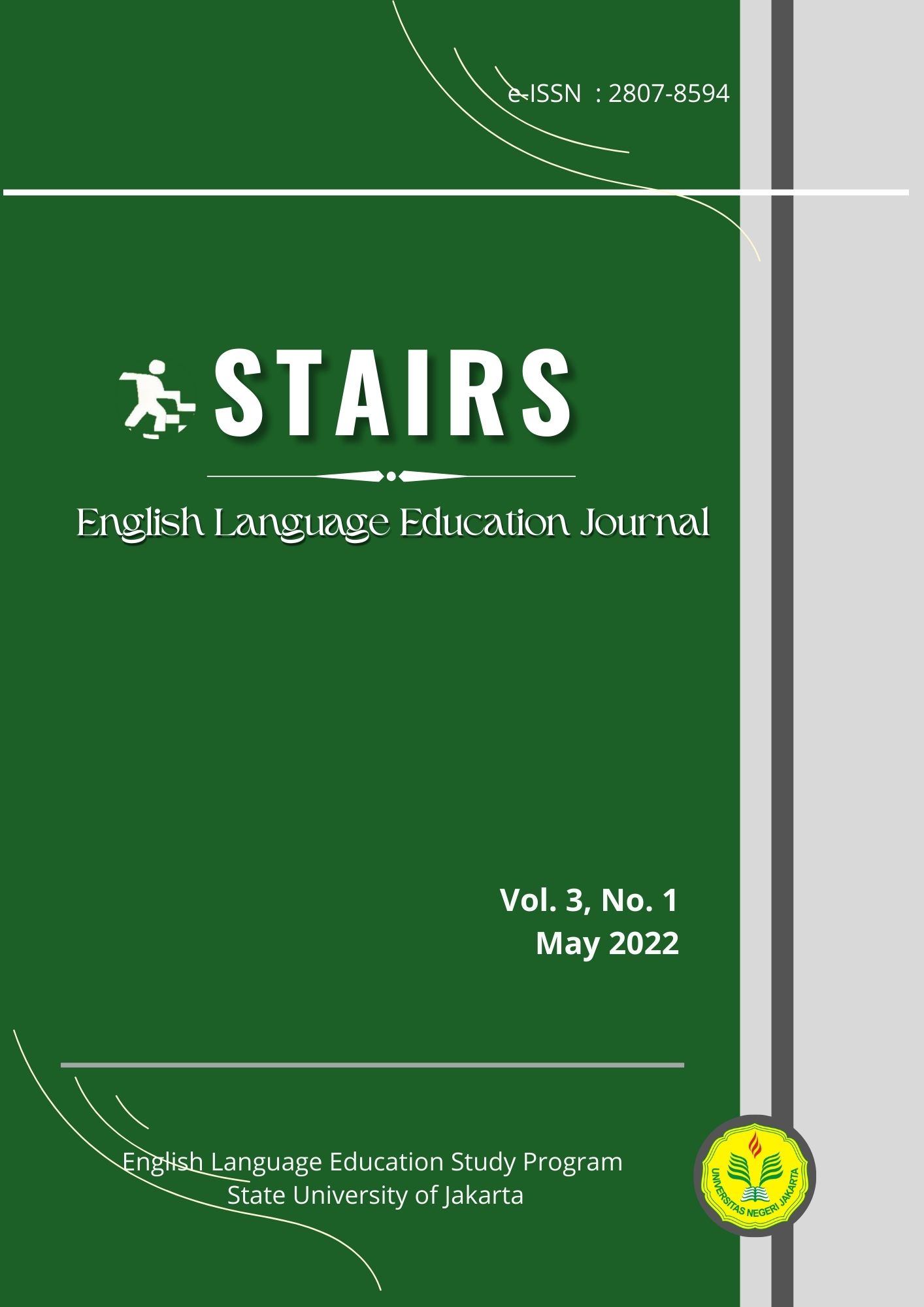Investigating The Learning of Incidental Vocabulary Through Animation Movie
DOI:
https://doi.org/10.21009/stairs.3.1.1Keywords:
Vocabulary Learning, Animation movieAbstract
This study aims to determine the process of incidental vocabulary learning through animated films, to know what conditions students learn incidental vocabulary through animated films, and to know what makes students successful in learning incidental vocabulary through movie-watching. This study uses a qualitative case study design with four 8th grade student participants and 1 English teacher at SMPN 1 Bojonegara. The researchers conducted observations and interviews to investigate all activities and conducted interviews to find more in-depth research results in their English vocabulary learning. The findings of this study indicate that some students already have several lists of vocabulary in their memory so that they can acquire familiar and newly acquired vocabulary. Watching animated films is very influential in acquiring incidental vocabulary because they unconsciously become active in exploring new vocabulary while watching them. However, students are still not interested in learning English, because they are not used to using animated films and are not used to exploring vocabulary because they are not used to doing it in everyday life.
References
Bellalem, Fouzi, Bel Abbes Neddar, Habib Bouagada, & Dalila Benelhadj l Djellou. (2018). The Use of Subtitled Movies for Vocabulary Acquisition in ESP Settings: Insights from an Experimental Study in Algeria. Arab World English Journal, 9.3. 3–16 <https://doi.org/10.24093/awej/vol9no3.1>
Harahap, Nursapia. (2020). Penelitian Kualitatif, ed. by Hasan Sazali. Medan Sumatera Utara: Wal ashri.
Karami, Amirreza, & Bowles, Freddie A. (2019). Which Strategy Promotes Retention? Intentional Vocabulary Learning, Incidental Vocabulary Learning, or a Mixture of Both?. Australian Journal of Teacher Education, 44.9, 25–43 <https://doi.org/10.14221/ajte.2019v44.n9.2>
Loewen, Shawn, and Masatoshi, Sato. (2017). The Routledge Handbook of Instructed Second Language. New York, NY: Routledge.
McCarten, Jeanne, (2007). Lessons from the Corpus, Lessons for the Classroom. New York: Cambridge University Press.
Puspita, Nurul, & Sabiqoh, Nurlaily. (2017). Teaching Vocabulary by Using Crossword Puzzle. English Education: Jurnal Tadris Bahasa Inggris, 10.2, 308–25.
Samsu. (2017). Metode Penelitian: Teori Dan Aplikasi Penelitian Kualitatif, Kuantitatif, Mixed Methods, Serta Research & Development). Jambi: Pusaka Jambi.
Sugiyono. (2013). Metode Penelitian Kuantitatif, Kualitatif, dan R&D. Bandung: Alfabeta.
Tang, Zhongqing. (2020). A Review on Studies into Incidental Vocabulary Acquisition through Different Input. English Language Teaching, 13.6, 89 <https://doi.org/10.5539/elt.v13n6p89>



